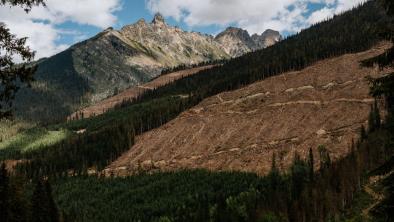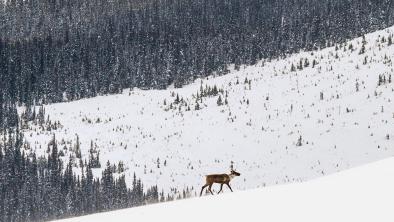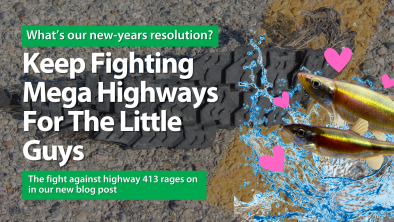Comment: Halt fish-farm growth until more studies are in

Latest approval aids firm behind two massive salmon culls this year
Victoria Times Colonist
By Torrance Coste
October 20, 2012
Last week, the B.C. government and Fisheries and Oceans Canada granted permits to Mainstream Canada, a subsidiary of Cermaq, one of the world's largest aquaculture companies, for its new salmon farm at Plover Point in Clayoquot Sound.
The massive feedlot will be Mainstream's 15th open-net site in Clayoquot Sound, an area designated as a UNESCO Biosphere Reserve.
This announcement comes at a time of great uncertainty for those concerned with the state of B.C.'s wild salmon - species vital to cultural, ecological and economic stability on our coast. The highly anticipated Cohen Commission, a federal inquiry into the decline of the Fraser River sockeye run, is set to release its findings at the end of the month. It is predicted that this study could unveil new information on the impact of salmon farms on B.C.'s wild salmon stocks.
Many groups, including the Wilderness Committee, feel it is incredibly irresponsible for provincial and federal agencies to issue permits for new open-net salmon farms before the results of the Cohen Commission are out, and until the impacts of this industry can be studied more extensively.
The fact that this permit is being issued to a company that has culled hundreds of thousands of fish at its Clayoquot Sound operations in the spring and summer of 2012 is even more disturbing. In May and August 2012, Mainstream culled its entire stocks at its Dixon Bay and Millar Channel sites (570,000 fish at Dixon Bay alone) because of outbreaks of the IHN virus, a disease that spreads rapidly and causes hemorrhaging, ane-mia and necrosis of flesh and organs in infected fish.
Mainstream has shrugged off these culls as "unfortunate incidents" that happen "from time to time," blaming wild Pacific salmon as the cause and continuing with business as usual. The virus does occur occasionally in wild salmon, but is able to multiply and spread at unprecedented rates when thousands of fish are crammed in pens a few hectares in size, which is the norm at industrial-scale sites like those Mainstream operates.
While the company has enjoyed a few relatively rare outbreak-free months, it has focused on its new proposal (now approved) at Plover Point, and on suing a British activist for voicing dissent about the salmon-farming industry - the case was thrown out of the B.C. Supreme Court at the end of September.
The new site at Plover Point is fiercely opposed by the Tla-o-qui-aht First Nation, a fact that has been largely ignored by the proponent and the provincial and federal review bodies.
Mainstream and the other companies farming salmon on our coast do commit resources to environmental testing and safety measures. But it just isn't possible for them to ensure that viral outbreaks don't occur on their sites and, given the nature of an open-net farm, spread into the surrounding marine environment. Everything in these sites is transmittable to the surrounding waters - from food, feces and urine to disease, fertilizers, hormones and even antibiotics.
The impact of these operations on surrounding coastal ecosystems and wild salmon stocks has not been sufficiently studied, and refusing to slow this industry down because of a lack of damning evidence against it would be a huge mistake.
To take a risk this big with a resource as ecologically, economically and culturally important as our wild Pacific salmon is nothing short of insane, but it seems to be a risk that industry proponents and legislators are comfortable with.
Mitigating potential threats to wild salmon while they're still in the ocean has become even more critical since last June, when the federal Bill C-38 drastically weakened the laws around habitat protection for salmon and other fish.
Given the vital role that wild salmon serve on this coast and the limited understanding of the full impacts of industrial salmon aquaculture on our marine ecosystems, new operations should not be approved until certain knowledge gaps can be filled.
Decisions like the one made recently by the province and DFO don't serve the best interests of British Columbians whose well-being and livelihoods depend on a healthy coast. They don't protect us from potential ecological threats, and they don't represent policymakers doing all they can to preserve the last of the wild Pacific salmon, once a mighty west coast icon.
This decision places a huge amount of risk on coastal B.C. and rewards a massive foreign company with a record of disease outbreaks.
Decisions like this are bad for our wild salmon, and bad for our coastal ecosystems and communities.
Torrance Coste is a Vancouver Island campaigner for the Wilderness Committee.
Photo: 2003 salmon farm protest in the Broughton Archipelago.


